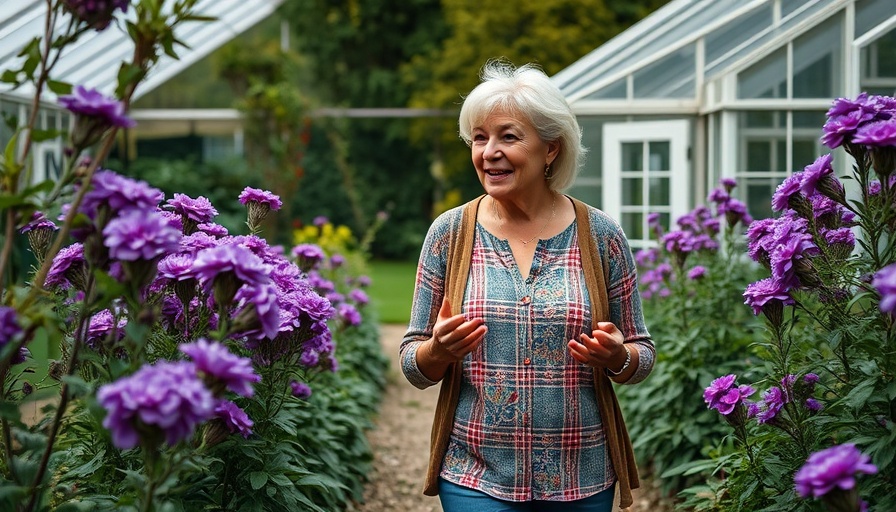
The Benefits of Cool Season Cover Crops for Your Garden
As urban farming enthusiasts in Vancouver, we often seek innovative ways to boost our garden's productivity and health. Cool season cover crops, such as clover and rye, offer numerous benefits during the fall and winter months. These hardy plants not only improve soil health but also combat erosion, suppress weeds, and attract beneficial insects. By incorporating these crops, you can set the stage for a fruitful growing season while keeping your garden eco-friendly.
In 'Cool Season Cover Crops,' the video presents an insightful overview of their role in urban gardening, prompting a deeper exploration of their importance in our local Vancouver community.
Understanding the Role of Cool Season Cover Crops
Cool season cover crops thrive in the cooler temperatures and shorter days of fall and winter. Ideal for Vancouver’s climate, these plants can grow rapidly, providing soil protection when your garden typically lies dormant. Not only do they build soil health through increased organic matter and nutrient cycling, but they also help maintain moisture levels in the soil by reducing evaporation. This can lead to a more resilient gardening system as you start planting your summer crops.
Enhancing Soil Nutrition with Nitrogen-Fixing Crops
One of the standout features of certain cover crops, like legumes (e.g. vetch and clover), is their ability to fix nitrogen in the soil. They can help improve nutrient availability for subsequent crops in the spring. By understanding how these plants work symbiotically with soil bacteria, you can create a self-sustaining garden ecosystem, lowering your need for chemical fertilizers and enhancing the overall health of your soil.
Easy Steps to Get Started with Cover Crops
Starting with cool season cover crops is easier than you might think! Begin by selecting crops that suit your preferences and garden space. After your last summer harvest, till the soil lightly, removing any weeds. Then, plant your cover crop seeds according to the recommended depth and spacing. Water them well to establish roots. As these crops grow, you'll notice your garden transforming into a green haven, ready to nourish the environment during the cold months.
How Cool Season Cover Crops Fit into the Urban Gardening Trend
Urban gardening is about more than just growing food; it involves developing sustainable practices that help our communities thrive. Vancouver residents grow increasingly concerned about food security and environmental sustainability. By utilizing cool season cover crops, you're not only contributing to your garden's health but also participating in a larger movement towards eco-conscious living. Let these plants serve as your allies in creating a more sustainable and vibrant city.
Local Perspectives on Seasonal Gardening
To truly understand the value of cover crops, consider their impact through a local lens. Vancouver's climate presents unique challenges and advantages for urban gardeners. By embracing cover crops, residents are reimagining the concept of seasonal gardening—utilizing every opportunity, even the coldest months, to nurture the land. Many local gardening groups and community workshops encourage conversations around these techniques, helping to strengthen community bonds through shared knowledge of sustainable practices.
Conclusion: Embrace the Cool Season for Your Garden's Success
In short, cool season cover crops are an excellent choice for Vancouver residents wanting to enhance their gardens while promoting sustainable practices. With their numerous benefits, including improved soil health and nutrient availability, these crops can take your garden to new heights. By joining the community of urban gardeners utilizing these methods, you're making a meaningful change not just within your own garden but also contributing to a collective movement towards more resilient urban landscapes.
If you're eager to try incorporating cool season cover crops into your own garden, now is the time to start planning! Engage with local gardening clubs or visit community centers to learn more and share your experiences with fellow urban gardeners!
 Add Row
Add Row  Add
Add 




Write A Comment